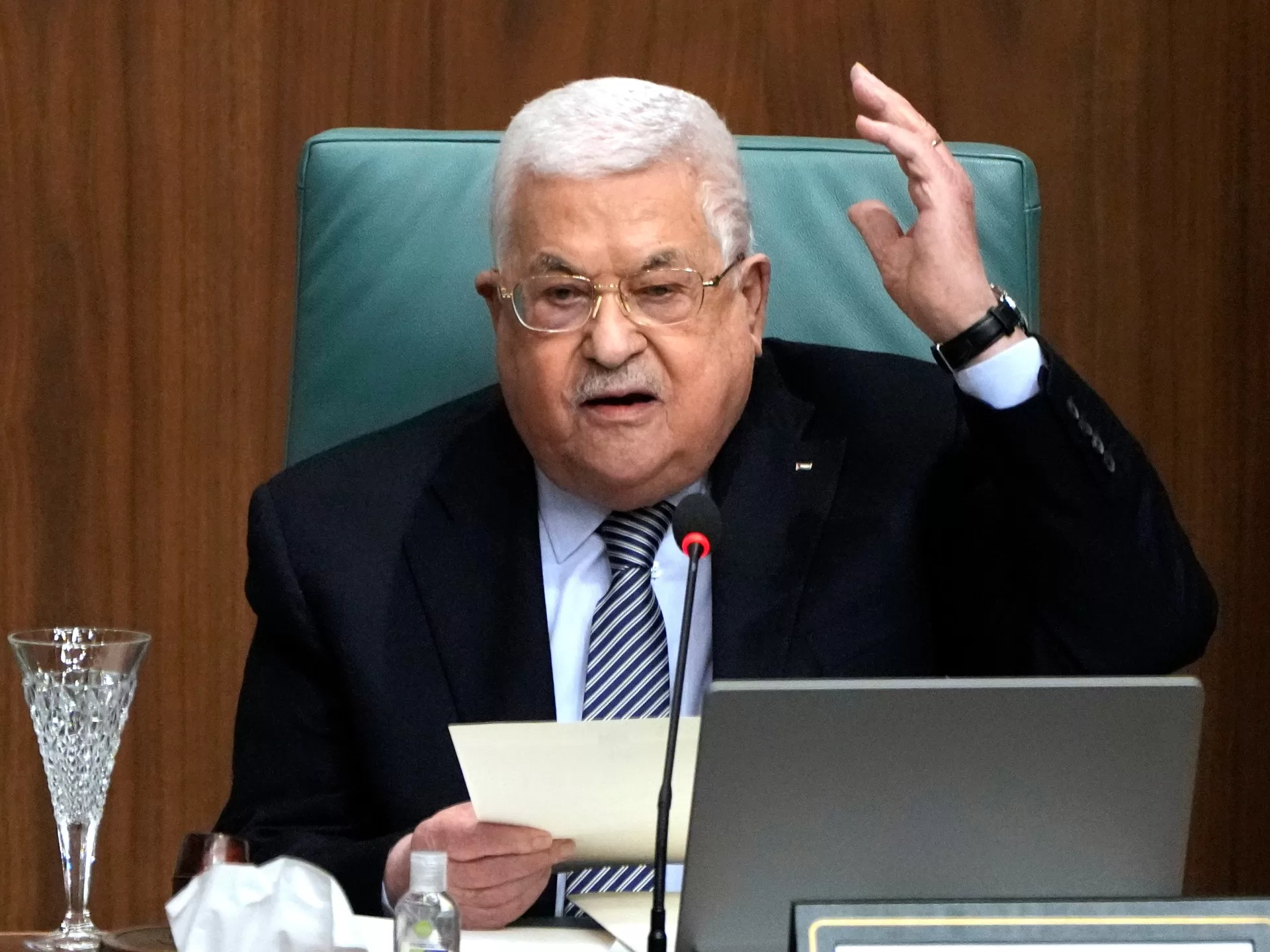Mahmoud Abbas has announced a new interim government as calls grow for a revitalised and reformed PA.
President Mahmoud Abbas, who has led the PA for nearly two decades, announced the new government in a presidential decree on Thursday.
Abbas tapped Mohammad Mustafa, a longtime adviser, to be prime minister earlier this month. He replaced Mohammed Shtayyeh, who, along with his government, resigned in February citing the need for change amid Israel’s brutal assault on Gaza and escalating violence in the occupied West Bank.
Mustafa is a politically independent US-educated economist and has pledged to form a technocratic government and create an independent trust fund to help rebuild Gaza. Mustafa will also serve as foreign minister.
Interior Minister Ziad Hab al-Rih is a member of Abbas’s secular Fatah movement and held the same portfolio in the previous government. The Interior Ministry oversees the security forces. The incoming minister for Jerusalem affairs, Ashraf al-Awar, registered to run as a Fatah candidate in elections in 2021 that were indefinitely delayed.
At least five of the incoming 23 ministers are from Gaza, but it was not immediately clear if they are still in the besieged territory.
The PA administers parts of the Israeli-occupied West Bank and is dominated by Abbas’s Fatah party. Fatah has long had a strained relationship with Hamas, the group that runs Gaza, and the two factions fought a brief war before Fatah was expelled from the territory in 2007.
The PA has little popular support or legitimacy among Palestinians, in part because it has not held elections in 18 years. Its policy of cooperating with Israel on security matters is extremely unpopular and has led many Palestinians to view it as a subcontractor of the occupation.
The provisional self-governing authority has also been unable to prevent Israeli occupation from expanding, including stopping Israel’s illegal settlement expansion project, home demolition orders and widescale arrests.
It has struggled to address major concerns about the status of Jerusalem – the eastern half of which remains occupied by Israel – as well as Palestinian refugees and the right of return.
Opinion polls in recent years have consistently found that a vast majority of Palestinians want the 88-year-old Abbas to resign.
The United States has called for a revitalised PA to administer Gaza after the Israeli war on the territory ends.
More than 32,000 Palestinians have been killed in the Israeli assault on Gaza since October 7, according to Palestinian authorities. More than 80 percent of its 2.3 million population has been displaced and are in desperate need of aid, and swaths of the enclave now lie in rubble.
Israel has rejected the US plan, saying it will maintain open-ended security control over Gaza and partner with Palestinians who are not affiliated with the PA or Hamas.
Mustafa said in a cabinet statement addressed to Abbas that the first national priority is an immediate ceasefire in Gaza and a complete Israeli withdrawal from the enclave, in addition to allowing humanitarian aid to enter in large quantities and reaching all areas, WAFA reported.
“In order to enable the launch of the recovery process and preparation for reconstruction, stop the aggression and settlement activities, and curb settlers’ terrorism in the West Bank,” Mustafa added.
Hamas has rejected the formation of the new government as illegitimate, calling instead for all Palestinian factions, including Fatah, to form a power-sharing government ahead of national elections.
Fatah and Hamas have attempted several times in the past to form a unity government, but the attempts have so far been fruitless.
